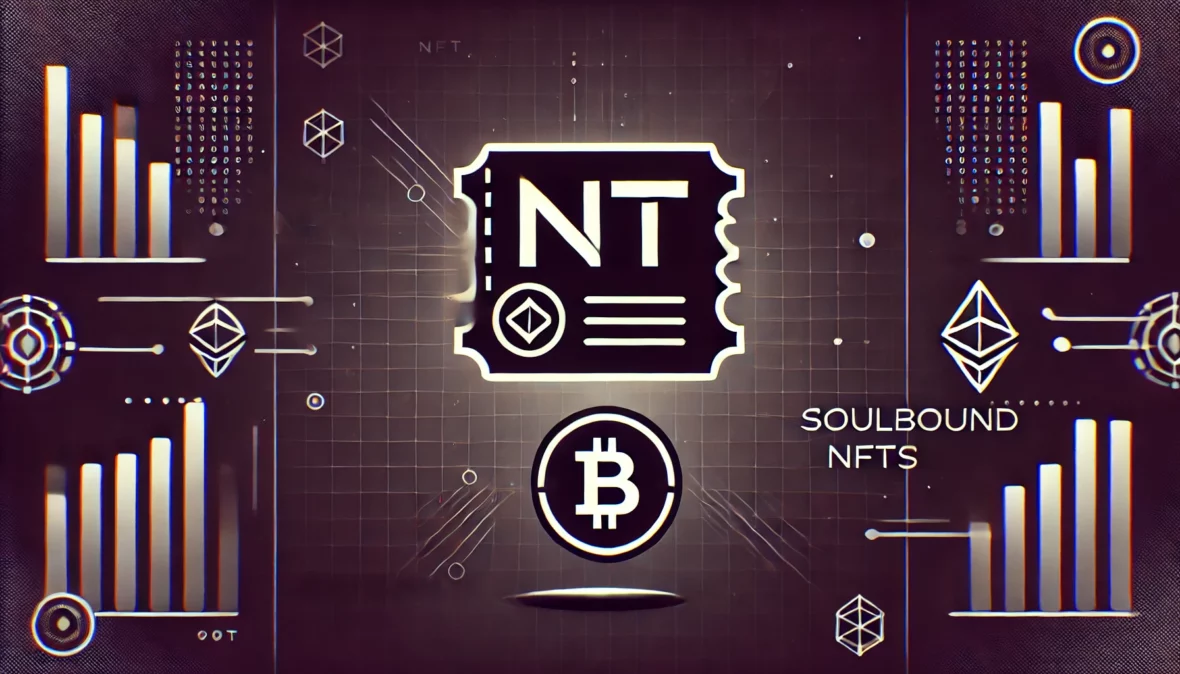The Difference Between NFT Ticketing and Soulbound NFTs

In the ever-evolving world of blockchain technology, both NFT ticketing and soulbound NFTs are gaining traction. These two forms of non-fungible tokens offer distinct functionalities and serve different business needs. While both utilize blockchain, understanding the differences in their application is crucial for businesses looking to integrate them into their operations.
Core Differences: Transferability vs. Permanence
The key difference between NFT ticketing and soulbound NFTs lies in transferability. NFT tickets are designed to be flexible, allowing users to resell or transfer them. This is ideal for events and services where flexibility is important, such as concerts or sports games. Soulbound NFTs, however, are non-transferable, meaning they remain tied to their original holder. This makes them perfect for use cases requiring permanent ownership, such as diplomas or exclusive memberships.
- NFT Ticketing: Transferable, enabling resale or gifting.
- Soulbound NFTs: Non-transferable, permanently linked to the holder.
- NFT Ticketing: Ideal for flexible ownership and secondary markets.
- Soulbound NFTs: Ideal for identity verification and permanent records.
Use Cases in Different Industries
NFT Ticketing is commonly used in entertainment and event management. The ability to buy, sell, or trade tickets on the secondary market creates opportunities for fans and businesses alike. Concerts, festivals, and sports events can benefit from dynamic pricing and enhanced user experiences.
Soulbound NFTs, on the other hand, are most effective for scenarios where permanence and exclusivity are key. Educational institutions, professional organizations, and luxury brands are increasingly adopting soulbound NFTs to manage long-term value and exclusivity, ensuring that certain privileges remain with the original holder.
- NFT Ticketing: Concert or festival ticket resale markets.
- NFT Ticketing: Event-based VIP access management.
- Soulbound NFTs: Issuing digital diplomas and certifications.
- Soulbound NFTs: Exclusive, non-transferable luxury brand memberships.
Security and Scalability Considerations
Security is a major consideration when choosing between NFT ticketing and soulbound NFTs. NFT tickets are transferable, which means they can be sold on secondary markets, but this can also introduce risks like price inflation or unauthorized resale. Soulbound NFTs eliminate these risks through their non-transferable nature, ensuring a higher level of security for exclusive memberships or certifications.
- NFT Ticketing: Risks of resale and price inflation.
- Soulbound NFTs: No risks of unauthorized transfers.
- NFT Ticketing: Requires robust platforms to prevent fraud.
- Soulbound NFTs: Simplifies security for high-value assets.
Real-World Business Applications
Example 1: NFT Ticketing for a Sports League
A global sports league utilized NFT ticketing to manage access to their final championship event. Fans could purchase NFT tickets and resell them on a secondary market. The league integrated smart contracts that enabled them to earn royalties on each resale. This approach increased revenue, while still offering fans the flexibility of ticket transfers.
Example 2: Soulbound NFTs for Professional Certification
A renowned cybersecurity certification organization adopted soulbound NFTs to issue digital certificates. These certificates could not be transferred, ensuring that only the individual who completed the course had access to the credential. Employers were able to verify the authenticity of the certifications easily, reducing the chances of fraudulent claims.
- NFT Ticketing: Allows dynamic pricing based on demand.
- NFT Ticketing: Secondary markets generate extra revenue.
- Soulbound NFTs: Permanent, secure records for certifications.
- Soulbound NFTs: Ideal for memberships tied to identity.
Benefits for Businesses
Choosing between NFT ticketing and soulbound NFTs depends on the specific goals of your business. Both offer distinct advantages that cater to different needs, whether it’s flexibility for event ticketing or security and exclusivity for long-term memberships and certifications.
- Flexible resale options: Easily transfer tickets between users.
- Royalty opportunities: Earn from secondary market sales.
- Broader access: Reach a wider audience through resales.
- Customizable experiences: Create tiered access for events.
- Immutable ownership: Non-transferable, ensuring exclusivity.
- Secure identity verification: Ideal for diplomas or credentials.
- No secondary market issues: Eliminates risks of scalping.
- Personalized memberships: Tied permanently to an individual.
Conclusion: Which Is Right for Your Business?
Both NFT ticketing and soulbound NFTs are valuable tools for businesses, but their applications are different. For businesses looking to enhance ticketing flexibility, maximize revenue through resales, or engage broader audiences, NFT ticketing offers a powerful solution. However, for companies needing secure, permanent records—such as educational institutions, professional bodies, or luxury brands—soulbound NFTs are the clear choice.
As blockchain technology continues to evolve, understanding these distinctions can help businesses make more informed decisions. By leveraging the right type of NFT, companies can create more secure, engaging, and flexible systems that align with their unique needs in the digital age.
